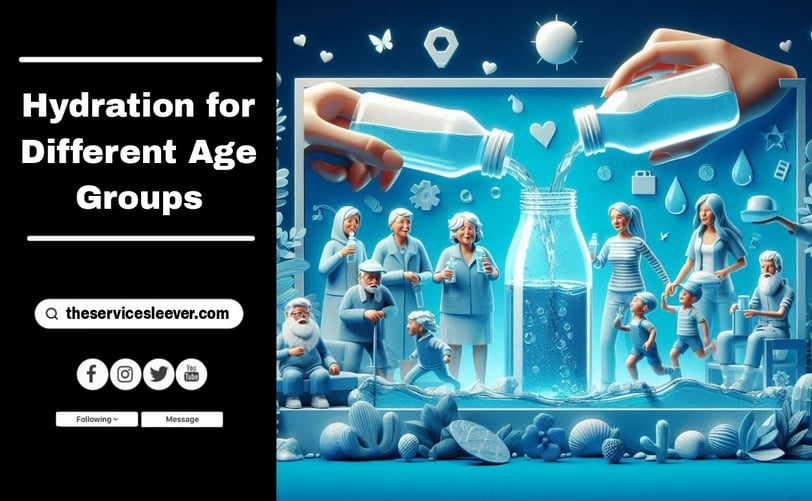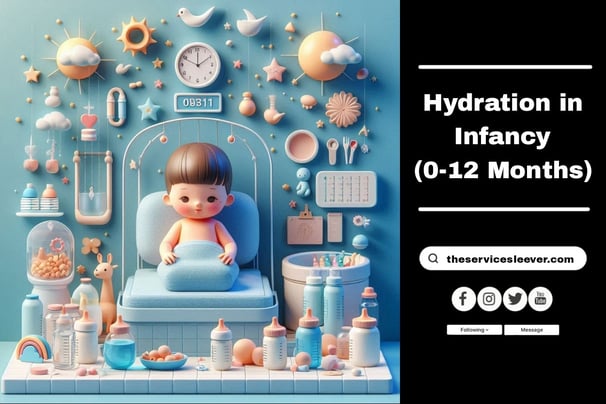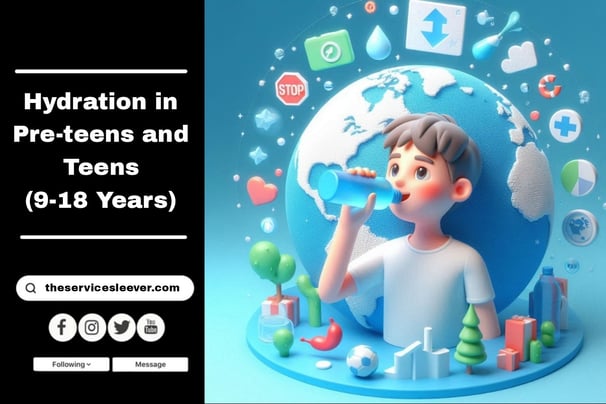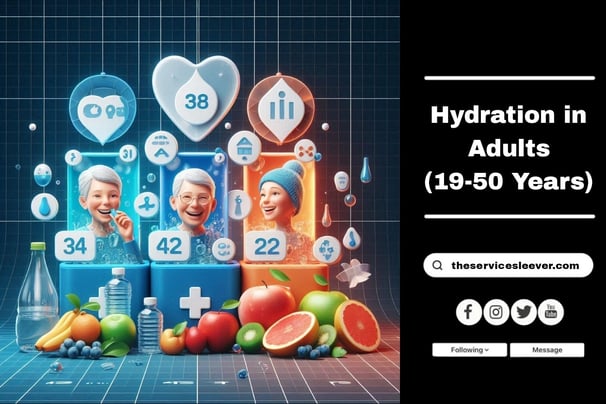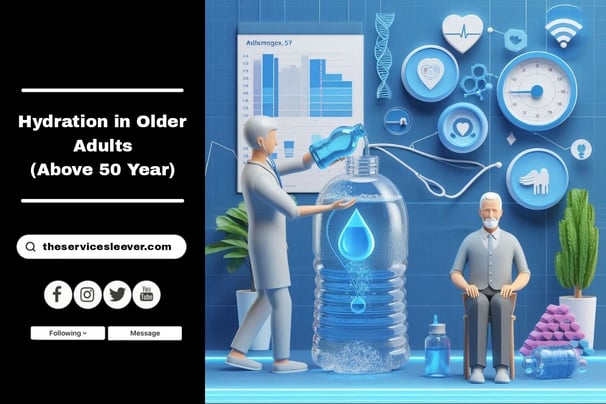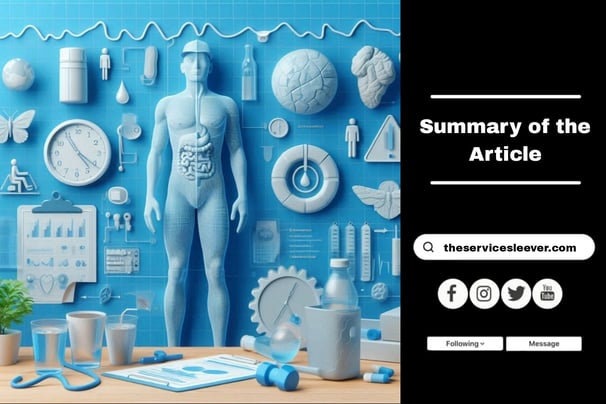Hydration for Different Age Groups- Why It Matters at every Stage of Life?
Blog post description. Learn how hydration needs change throughout life in this guide on hydration for different age groups. Explore practical tips for staying hydrated at every stage of life.
HYDRATION
Introduction
Hydration is a fundamental aspect of maintaining good health. But did you know that your hydration requirement for the body is changing with your age? The required amount of water for our bodies and how we retain it can vary significantly from the infancy stage to the senior years. This means that understanding hydration for different age groups is crucial for ensuring proper health conditions as well as maintaining a good well-being throughout life.
Each life stage comes with its own set of hydration challenges, whether it’s a toddler learning to drink water for the first time, an active teenager playing sports, or a senior adjusting to changes in thirst perception. Staying properly hydrated at every above stage helps in supporting vital functions of the body such as digestion, temperature regulation, and mental clarity.
Let’s explore hydration for different age groups, from the early years through to older adulthood, from this article. You’ll discover how your body’s water needs evolve, the unique factors affecting hydration at each stage, and practical tips to ensure you’re drinking enough for your specific age group. Understanding the importance of hydration for different age groups can make all the difference in supporting a healthy lifestyle, whether you're a parent looking to keep your child hydrated or an adult who wants to improve your water intake.
Hydration in Infancy (0-12 Months): The First Stage of Hydration for Different Age Groups
Breast milk or formula is the main source of hydration for a newborn during the first year of life. These supply all of the fluids a newborn requires for appropriate growth and development. Understanding hydration in infancy is crucial when examining hydration for different age groups, as the needs of infants differ greatly from older children and adults.
Infants typically don't require extra water throughout the first six months of life. Hydration for different age groups is critical here since newborns' bodies are more susceptible to dehydration, particularly during illness or hot weather. All the water they need is provided by breast milk or formula, which also contains vital nutrients that support their healthy development.
Little amounts of water can be introduced to babies along with meals once they start eating solid foods, which is usually around six months. This is the first step in their lifelong hydration journey, marking the beginning of adjustments to hydration for different agegroups. It is important for parents to make sure that they give their babies tiny, controlled amounts of water to avoid water intoxication, which could affect their electrolyte balance.
Key Tips for Infant Hydration:
Keep an eye out for dehydration symptoms: Infants that are dehydrated may exhibit dry lips, fewer wet diapers, and sunken soft spot on their heads.
Introduce water slowly: Water can help with digestion without overwhelming a baby's system when they are first introduced to solid foods.
Formula and breastfeeding remain essential: These should be the primary sources of hydration during the first year.
Parents can support their baby’s health from the very beginning of life by understanding the unique hydration needs during infancy and keeping hydration for different age groups in mind. This lays the groundwork for the child to develop good hydration habits as they grow and their fluid requirements change.
Hydration in Toddlers and Young Children (1 – 8 Years): A Vital Stage in Hydration for Different Age Groups.
Hydration requirements for children fluctuate dramatically as they grow from infants to toddlers and early childhood. This era is especially essential for understanding hydration in different age groups since toddlers and young children are extremely active, fast-growing, and frequently ignorant of their body's hydration cues. Their physical and mental growth is greatly aided by adequate water, which also promotes healthy digestion, energy maintenance, and body temperature regulation.
Water should now be the main source of hydration for toddlers and young children, who need more water than they did when they were newborns. But getting young kids to drink enough water can be difficult, particularly if they prefer juice or other sugary drinks. Encouraging them to adopt healthy hydration habits from the start is critical to ensuring they achieve their daily fluid requirements. It's evident from looking at hydration for different age groups that parents need to be aware of the special difficulties toddlers have, like high activity levels and a preference for flavored drinks over water.
Hydration Difficulties for Young Children and Toddlers:
Active Play: Toddlers and young children are always moving, so they sweat more quickly and require frequent hydration breaks.
Dislike of Plain Water: Many young children avoid drinking plain water, making it difficult to achieve their hydration requirements. This might lead to a desire for sugary beverages, which should be limited in order to avoid unhealthy behaviors.
How to Keep Toddlers and Young Children Hydrated:
Make Having Fun with Water: Get children to drink more water by giving them colorful, entertaining water bottles, water container sleeves, or glasses. Water can also taste better by adding a piece of fruit for flavor.
Regular Reminders to Hydrate: It is important for parents to urge toddlers to sip water throughout the day because they are frequently too occupied playing to realize when they are thirsty.
Limit beverages high in sugar. Drinks with flavors and juices should be consumed in moderation. Instead, provide water at mealtimes and while playing to encourage appropriate hydration habits.
Parents may assist their toddlers and young children in staying healthy, active, and hydrated by knowing the importance of water during this developmental time and considering age-appropriate drinking habits. This crucial phase is an essential part of the conversation about hydration for different age groups because it lays the groundwork for future healthy drinking habits as well as promotes their cognitive abilities and capabilities.
Hydration in Pre-teens and Teens (9-18 Years): Navigating Growing Needs in Hydration for Different Age Groups
As children enter their adolescent and teen years, their bodies undergo substantial changes that affect their hydration demands. This stage is particularly important when considering hydration for different age groups, as the combination of rapid growth, hormonal shifts, and increased physical activity means that preteens and teens require more water than they did in earlier years. Proper hydration promotes not only physical development but also mental attention and energy levels, which are critical during these formative years.
Preteens and teens may become more interested in sports, after-school activities, or just spend more time outside during adolescence, increasing their risk of dehydration. They may also acquire a taste for sugary beverages, such as sodas or energy drinks, which can contribute to poor hydration habits. Encouraging kids to understand the value of water and how it supports their body's functions is essential to building healthy drinking habits.
When it comes to hydration for different age groups, it's apparent that preteens and teens face distinct issues because of their hectic schedules and desire for independence. Encouraging kids to take charge of their hydration can help them develop long-term healthy habits.
Hydration Challenges in Preteens and Teens:
Increased Physical Activity: Preteens and teenagers frequently engage in high levels of physical exertion, whether through school sports or extracurricular activities, making it critical to replenish lost fluids.
Sugary Drink Temptation: Many teenagers choose energy drinks, sodas, or flavored drinks over water, which can result in dehydration and bad health in general.
Issues with Body Image: Some youths may purposefully avoid drinking water in order to minimize perceived water weight, particularly when it comes to appearance and body image, which can be potentially dangerous
Effective Strategies for Preteens and Teens to Stay Hydrated:
Incorporate Water Into Routines: Advice teenagers to bring reusable water bottles with their protective sleeve to class, practice for their sport, or other events. This makes it easy to maintain a steady water intake throughout the day.
Infuse Water with Flavor: For individuals who find plain water uninteresting, consider adding slices of fruit or herbs such as mint to make it more palatable without adding sugar.
Educate About Performance: Teach teenagers the importance of adequate hydration and how it impacts their academic and athletic performance. Draw attention to the relationship between hydration and stamina, energy, and focus.
Parents and other caregivers can better support the health of preteens and teens by being aware of their developing hydration demands. Hydration for different becomes increasingly crucial during adolescence, since excellent hydration habits developed during this time can carry over into adulthood, ensuring individuals remain healthy and hydrated for the rest of their lives.
Hydration in Adults (19-50 Years): Maintaining Balance in Hydration for Different Age Groups.
Maintaining general health and wellbeing in adulthood requires adequate hydration. While adults are usually better conscious of their hydration requirements, variables such as job schedules, stress, and physical activity levels can make it easy to ignore the necessity of remaining properly hydrated. Understanding hydration for different age groups in adulthood is critical for matching daily water intake with lifestyle demands, ensuring that the body works properly in both personal and professional situations.
Adults require appropriate water to control body temperature, facilitate digestion, support cognitive function, and keep their skin healthy. Adults should drink 2-3 liters of water per day on average. However, this might vary depending on weight, activity level, and climate. Hydration for different age groups becomes increasingly complicated for adults as their lives change, from sedentary office employment to physically demanding vocations.
Furthermore, many individuals replace water with coffee, tea, or alcohol, all of which can contribute to dehydration if drunk in excess. Consistent hydration throughout the day keeps individuals awake, energized, and able to perform at their best.
Hydration Challenges in Adults:
Busy Lifestyles: Many individuals become so preoccupied with work or family obligations that they forget to drink water, which leads to dehydration over time.
Alternatives to Water: Many people drink coffee, tea, and alcohol instead of water, which can cause fluid imbalances and dehydration if not balanced with enough water intake.
Physical Activity: Adults who exercise regularly or work in physically demanding jobs must be extra careful to replenish fluids lost via sweating.
Useful Advice for Adult Hydration:
Carry a Water Bottle with a Protective Sleeve Wherever You Go: It's simpler to drink water consistently throughout the day when you have a reusable water bottle with a protective sleeve at your desk, in your car, or at the gym.
Set Hydration Reminders: Use apps or phone alarms to remind yourself to drink water at regular intervals, especially if you tend to become preoccupied with chores or meetings.
Adjust for Physical Activity: If you exercise frequently, make sure you drink enough water, especially in hot or humid locations where dehydration is more probable.
Staying hydrated as an adult helps maintain energy levels, improves focus, and supports overall health. Making sure you're getting enough water is important for staying hydrated at all ages, whether you're juggling demanding work or a family. Don't underestimate its importance. Adults can maintain their health and well-being at every stage of life by implementing tiny but regular practices.
Hydration in Older Adults (Above 50 Year): Meeting Evolving Needs in Hydration for Different Age Groups
Our bodies change as we age, affecting how we retain and use water, therefore hydration in older individuals is an important area to study when comparing hydration for different age groups. Elderly persons frequently experience issues like diminished thirst, altered kidney function, and drug side effects, all of which, if left untreated, can result in dehydration. Dehydration can exacerbate major health concerns in older persons, such as kidney problems, urinary tract infections, and cognitive impairment. Despite these risks, many seniors fail to drink enough water simply because they are no longer as thirsty as they once were. This is an important factor to consider when determining hydration for different age groups, as older persons must be more careful of their water intake even when they are not thirsty.
Chronic illnesses and drugs can also have an impact on hydration, making it even more vital for older persons to keep well-hydrated. Proper hydration not only supports body activities such as digestion and temperature control, but it also aids in the maintenance of mental clarity and mobility, all of which are essential for older persons to remain active and independent.
Hydration Challenges in Older Adults:
Reduced Thirst Sensation: Numerous elderly individuals tend to underestimate their water intake due to their declining awareness of their body's inherent thirst signals.
Medication Effects: Dehydration is a risk factor for certain drugs, such as diuretics and laxatives.
Long-Term Medical Conditions: It is crucial to regularly check fluid consumption since some conditions, such diabetes or kidney illness, can make hydration requirements even more complex.
Practical Tips for Hydration in Older Adults:
Establish a Hydration Schedule: Older individuals should try to avoid waiting until they feel thirsty and instead seek to consistently drink small amounts of water throughout the day.
Make Use of Lightweight Bottles: Carrying a lightweight, easy-to-hold water bottle with a protective sleeve can make it easier for older persons to stay hydrated, especially if movement is limited.
Incorporate Water-Rich Foods: Fruits with high water content, such as watermelon, cucumbers, and oranges, can assist enhance hydration while also providing nourishment.
Older folks can preserve their health and vigor by being aware of their bodies' changing needs and paying attention to potential hydration issues. Understanding hydration for different age groups is especially important in the elderly, as taking a proactive approach to hydration helps prevent health difficulties and increase general well-being. Encouraging simple, persistent hydration practices can help older persons live longer and better lives.
Hydration Tips for Every Age Group: Key Takeaways in Hydration for Different Age Groups.
We've now covered the requirements for hydration at every period of life, from early childhood to older maturity. It's evident that, even though the details of hydration vary, there are universal behaviors that are advantageous to all. Drinking enough of water is crucial for maintaining good physical and mental health as well as general wellbeing at any age. This section will present practical hydration suggestions for different age groups, ensuring that everyone can maintain optimum fluid consumption throughout their lives.
Always Have a Water Bottle with You: One of the simplest methods to stay hydrated during the day is to always have a reusable water bottle on hand, whether you're an older adult or a busy teen. This simple habit works for hydration for different age groups by making water accessible at all times.
Have a drink with your meal: Drinking water with every meal is an excellent method to increase your daily intake. Sipping water during meals, whether for breakfast, lunch, or supper, aids digestion and keeps hydration levels consistent.
Adjust for Weather and Activity Levels: Climate and level of physical effort affect the need for hydration. All age groups should drink more water when engaging in intense physical activity or in humid climes to prevent dehydration.
Incorporate Water-Rich Foods: Cucumbers, watermelon, and oranges are examples of high-water fruits and vegetables that can be a pleasurable and nutritious approach to increase hydration for different age groups. Individuals who struggle to drink enough plain water will benefit most from include these in their diet.
Monitor Urine Color: Monitoring urine color is a simple yet efficient approach for people of all ages to measure their hydration levels. Pale yellow pee indicates adequate hydration, however darker urine may indicate the need for extra fluids.
Summary: The Importance of Hydration for Different Age Groups
Hydration is an important part of overall health at all stages of life. Understanding hydration for different age groups is critical for sustaining general well-being, from infancy, where breast milk or formula provides all necessary fluids, to older adulthood, where reduced thirst sense can lead to dehydration.
The journey through life presents several hydration issues, such as encouraging children to drink more water, assisting teenagers in avoiding sugary drinks, and ensuring elders stay hydrated even when they are not thirsty. Small yet regular practices can have a huge impact on long-term health, regardless of age group.
You can support your physical and emotional health at any age by being aware of your body's water requirements. Encourage hydration with regular reminders, water-rich foods, and practical methods for staying hydrated, regardless of age. Understanding hydration for different age groups and implementing the right strategies will help keep you healthy, energized, and thriving throughout your life journey.
...................................................................END OF THE ARTICLE.................................................................
